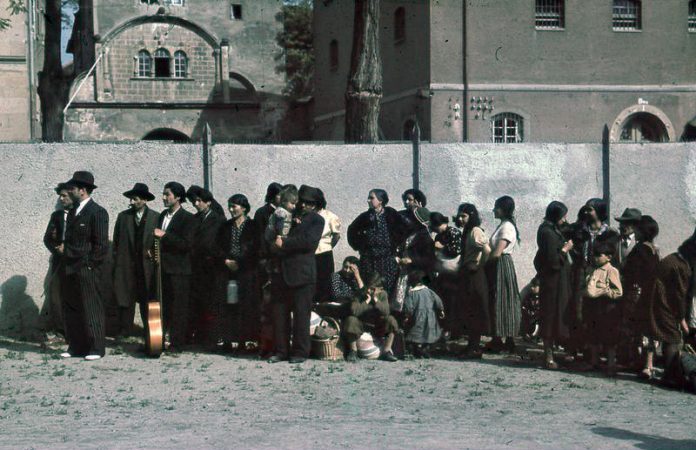Ahead of the Roma Holocaust Memorial Day on August 2, the European Commission’s First Vice-President Frans Timmermans and Commissioner Věra Jourová issued a statement in honour the memory of the hundreds of thousands of Roma victims of the Holocaust.
As many as 500,000 Roma from all over Europe were killed by the Nazis and their collaborators, representing at least a quarter of their total population at that time.
“The dehumanisation of the Roma and other minorities was the first step in facilitating these heinous crimes. We must remember this today and defend forcefully and passionately our shared European values of equality and non-discrimination,” said Jourová on August 1.
“The Roma are forgotten victims of the Holocaust for many Europeans. Remembering their historical persecution reminds us of the need to tackle the challenges which they still face today and which are too often overlooked. Seven decades on, Sinti and Roma still face hatred, violence, discrimination and racism on a daily basis. And many still do not have access to basic necessities such as decent housing, education and healthcare.”
According to the Commissioner, it is the duty of all EU member states to ensure effective policies for the remembrance of historical atrocities, to safeguard and preserve historic sites, and to promote education and research in this field.
“And it is the duty of each and every one of us in the EU to treat our fellow citizens with dignity and respect, in particular the most vulnerable ones in our society.”
Every year on August 2, the European Commission pays tribute to the memory of the Roma victims of the Holocaust and reaffirms its unwavering commitment to counter antigypsyism, antisemitism, racism, and other forms of intolerance.
According to a Commission press release, the situation of Roma today is slowly improving.
“The EU is built on the values of tolerance and equality. These values are not yet enjoyed by every EU citizen, and that is not acceptable,” said First Vice-President Frans Timmermans. “Member states have to accelerate their efforts to improve Roma integration if we are to put an end to the prejudices, segregation and discrimination still felt by Roma today.”
However, in the areas of education, employment, health, and housing, improvements are unequal and modest, according to the EU’s assessment.

